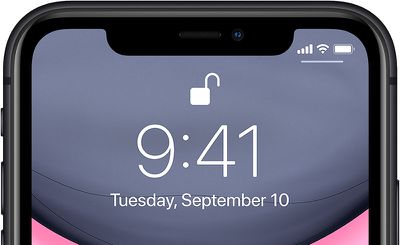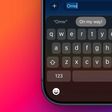The FBI broke the law when it powered on a suspect's smartphone to take a photo of his lock screen without a warrant, a U.S. District Court Judge has ruled (via Ars Technica).

In a Seattle court, Judge John Coughenour determined that gathering evidence from a lock screen constitutes a search, therefore doing so without first obtaining a warrant violates the Fourth Amendment, which prohibits unreasonable search seizure.
Joseph Sam from Washington state was arrested in May 2019 and indicted on several charges related to robbery and assault. The suspect was in possession of a Motorola smartphone. According to Sam, one of the officers present at his arrest pressed the power button to bring up the phone's lock screen.
What is known is that on February 13, 2020, the FBI removed Mr. Sam's phone from inventory, powered the phone on, and took a photograph of the lock screen [...] The photograph shows the name “STREEZY” right underneath the time and date.
The suspect's name revealed on the phone's unlock screen turned out to be useful evidence. Sam's lawyer subsequently filed a motion arguing that this evidence should not have been sought without a warrant and should therefore be suppressed.
Judge Coughenour ruled that the police were within their rights to look at the lock screen at the time of the arrest, given that certain circumstances allow for a search to take place without a warrant. However, investigators involved in later search and seizure must obtain a warrant first.
The police's examination took place either incident to a lawful arrest or as part of the police's efforts to inventory the personal effects found during Mr. Sam's arrest. The FBI's examination, by contrast, occurred long after the police had arrested Mr. Sam and inventoried his personal effects. Those examinations present significantly different legal issues […]
The FBI physically intruded on Mr. Sam's personal effect when the FBI powered on his phone to take a picture of the phone's lock screen.
Usually when the topic of a smartphone search comes up in court, the question has to do with forcing suspects to unlock their phone, so this is the first case where merely viewing a lock screen has been subject to judicial scrutiny.
A 2019 U.S. court ruling judged that law enforcement officials can't force smartphone users to unlock their devices using fingerprints or other biometric features such as facial recognition, since doing so would run afoul of the Fourth and Fifth Amendments.
Previous to the 2019 ruling, multiple cases involved law enforcement forcing suspects to unlock their iPhones and other devices using biometric authentication.
Note: Due to the political or social nature of the discussion regarding this topic, the discussion thread is located in our Political News forum. All forum members and site visitors are welcome to read and follow the thread, but posting is limited to forum members with at least 100 posts.


















